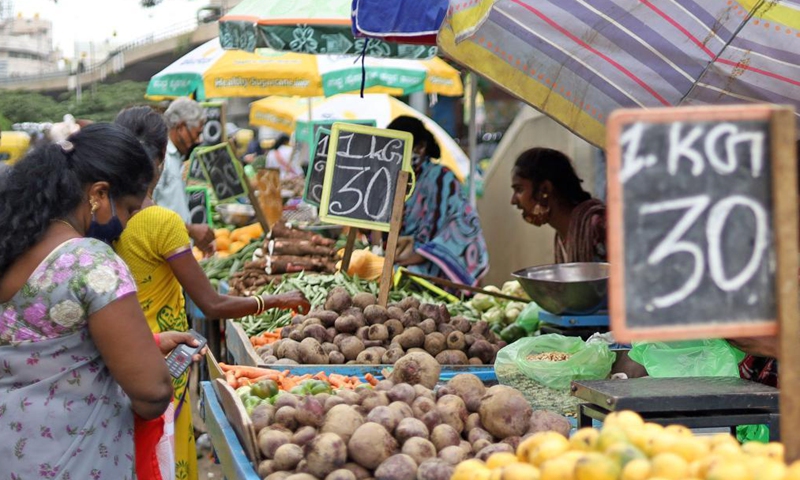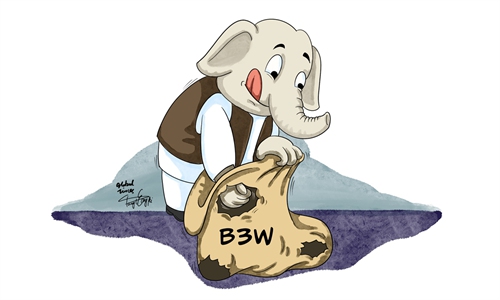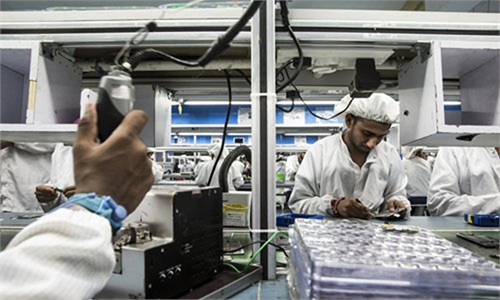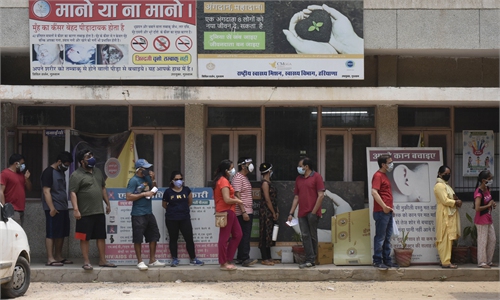
Vendors resume business as the COVID-19 restrictions ease at one of the oldest market in Bangalore, India, July 16, 2021.Photo:Xinhua
US Secretary of State Antony Blinken is set to visit India in the coming days, offering a window of observation as to whether US-India relations could help lift the Indian economy out of its current distress.
While Washington sees Blinken's agenda focus on "Indo-Pacific engagement, shared regional security interests, shared democratic values, and addressing the climate crisis" as well as the response to the COVID-19 pandemic, past experience of bilateral exchanges showed that the US cannot rope in India in supporting its Indo-Pacific strategy through emphasizing ideological alliances alone.
In fact, for the pandemic-battered India, how to shrug off the impact of a second deadly wave of infection is the top priority. In this sense, what their US friend can do to strengthen cooperation on COVID-19 response and help the Indian economy may be what most Indians are looking forward to regarding Blinken's visit.
Although the second wave of the outbreak seems to be waning at a national level in India, its harmful effects may be linger on for a long time as the country is struggling to get back on track.
If anything, the focus of the Indian society remains on how to contain the epidemic and lift its economy. As health authorities have been warning of a possible third wave of infections, it will be an urgent problem as regards how India can provide enough vaccines for its large population. Meanwhile, various indicators showed the Indian economy has been hammered so hard during the second wave of the outbreak. Due to the country's relatively low credit ratings and high inflation, there are also worries over a potential financial crisis.
At this point, whether the US could offer any aid to India when it comes to alleviating its epidemic and economic woes will be a test to the bilateral ties. It would be delusional for the US to build its relations with India based on the ideological values, but it also seems questionable whether the US can truly and generously lend India a helping hand to facilitate the latter's stable economic development.
From India's perspective, while the country has been tilting toward its allies under the "Quad mechanism," such an ideological foreign strategy will not work to boost the Indian economy at all. There is no way for India's political elites to mistaken what kind of help the country really needs from the so-called allies.
Take vaccine partnership as an example. While the US identified India as an important vaccine supplier that has the production capacity to counter China's influence in the region, it reportedly blocked some exports of raw materials needed to ramp up production of India's vaccines. It was only after some Indian vaccine makers urged the US to lift the embargo on exports of critical ingredients and other countries pledged aid to India that the Biden administration announced in late April to supply India raw materials to help fight the second wave. It remains to be seen whether India's vaccine manufacturers have access to a steady supplies of raw materials.
In addition, due to their different interests, there have been frictions between India and the US in terms of economic and trade cooperation. It is not uncommon to see the US accuse India of protectionism when it comes to domestic industries. Yet, if their economic cooperation cannot be improved in the long term, the pursuit of a successful and stable relationship will be just a castle in the air.



